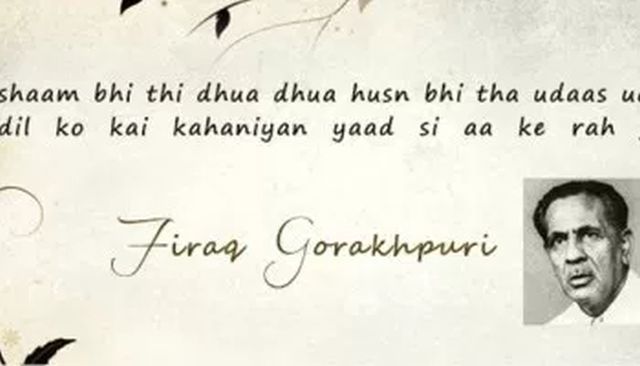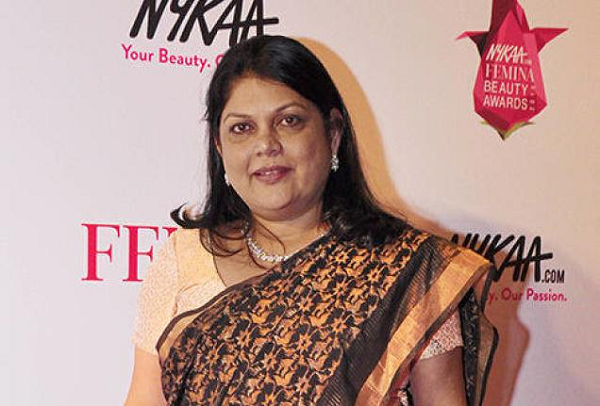
Shairi se mashvare: Urdu poets on religion, nation-building and life
By Vikas Datta,
We may be familiar with the literary concept of ‘poetic justice’, though in this modern technological and globalised age, we are more liable to call it ‘laser-guided karma’. But as the original term suggests, we desire not only justice but justice that happens in a “poetic” manner. Does the poetic form of literature treat advice the same way?
Poets will undoubtedly agree, but so do others too. While Samuel Taylor Coleridge held: “No man was ever yet a great poet without being at the same time a profound philosopher. For poetry is the blossom and the fragrance of all human knowledge, human thoughts, human passions, emotions, language”, an iconic US President also stressed its importance beyond literature.
“When power leads man towards arrogance, poetry reminds him of his limitations. When power narrows the areas of man’s concern, poetry reminds him of the richness and diversity of his existence. When power corrupts, poetry cleanses…” said John F. Kennedy at Massachusetts’ Amherst College, barely a month before his assassination.
But while lessons from “wisdom married to immortal verse”, as Wordsworth termed poetry, abound in Western literature, does our poetic tradition, especially of the courtly and polished Urdu, have similar enlightening and edifying insights into life?
Definitely, as some couplets from its greatest masters show. In these, we can find everything from the fundamental tenet and purpose of religions, the making of India and its composite ‘ganga-jamuni’ culture, the price of existence, the importance (or lack thereof) of the individual, how to appraise fellow humans and what celestial portents indicate.
Though a chronological approach may not be feasible, let’s begin with the earliest of them, the first well-known poet of Urdu, for Mir Taqi ‘Mir’ touches on a subject that has been extremely divisive but he very simply and extremely tellingly brings out its fundamental similarity: “Us ke farogh-e-husn se jhamke hai sab mein noor/Sham-e-haram ho ya ho diya Somnath ka“.
And in the next century, Syed Akbar Hasan Rizvi ‘Akbar Allahabadi’ sought to remind custodians of both of their right (hidden) place in a modern, multi-confessional nation: “Agar mazhab khalal-andaz hai mulki maqasid mein/To shaikh-o-barhaman pinhan rahen dair-o-masajid mein“.
On the other hand, the making of India, with its openness to all kinds of people, is as simply but eloquently explained by Raghupati Sahay “Firaq Gorakhpuri’ in: “Sar-zameen-e-Hind par aqwaam-e-alam ke ‘Firaq’/Qafile baste gaye Hindustan banta gaya“.
All these sentiments however can be better understood and practised once we imbue life’s proper lessons. And here we need those which speak to us as individuals, and there are plenty.
First of all, we must learn to live on reason, not blind faith for Faiz Ahmed ‘Faiz’ noted: “Dast-e-falak mein gardish-e-taqdeer to nahi/Dast-e-falak mein gardish-e-ayyam hi to hai” (or, in simpler terms, the sky doesn’t show fate, but the promise of a new day).
How much importance should we pay our life, is angrily answered by Shaukat Ali Khan ‘Fani Badayuni’, who perhaps taking a cue from Omar Khayyam’s “… Make Game of that which makes as much of Thee” (quatrain XLV, Fitzgerald’s first translation), says: “Zindagi meri bala jaane, mehngi hai ya sasti hai/Muft mile to maut na lun, hasti ki kya hasti hai“.
We must also not look for continuous, unalloyed happiness in it as a matter of right for Mirza Asadullah Khan ‘Ghalib’, in one of his greatest ghazals, tells us: “Qaid-e-hayat o band-e-gham asl mein dono ek hain/Maut se pahle aadmi gham se najat paaye kyun“, or for that matter, think too much of our importance in it: “Ghalib-e-khasta ke baghair kaun se kaam band hai/Roiye zaar zaar kya kijiye haaye haaye kyun“.
But if we had to look for the most useful lesson of umanity, we couldn’t do better that look at the poetry of a monarch, who was himself the monarch of poetry, the unfortunate Bahadur Shah ‘Zafar’, the last of Mughals, who said: “Na thi haal ki jab hamen apni khabar rahe dekhte auron ke aib-o-hunar/Padi apni buraiyon par jo nazar to nigaah mein koi bura na raha“.
He also gave his standard to judge his fellow humans: “Zafar aadmi us ko na janiyega vo ho kaisa hi sahab-e-fahm-o-zaka/Jise aish mein yaad-e-Khuda na rahi jise taish mein khauf-e-Khuda na raha“.
And while we could end with him, his ustad Sheikh Mohammad Ibrahim ‘Zauq’ deserves this honour. And he also has some good advice: “Behtar to hai yehi ki na duniya se dil lage/Par kya karen jo kaam na bedillagi chale“, or even “Duniya ne kis ka raah-e-fana mein diya hai saath/Tum bhi chale chalo yunhi jab tak chali chale“.
That is the best cue to end.
(Vikas Datta is an Associate Editor at IANS. The views expressed are personal. He can be contacted at vikas.d@ians.in)
—IANS

